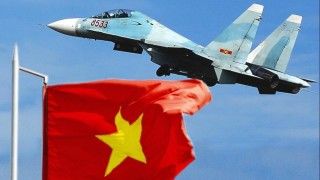- WIADOMOŚCI
- ANALIZA
Russia – A Petroleum Paradise Which Is Going To Face A Fuel Crisis in 2016?
Despite the woeful technical condition of the Russian petrochemical industry, 1/3 of the factories are going to postpone the repair works which were planned to be executed this year. The above may lead to a serious shortage of fuel in Russia, as early as 2016. Fuel sector crisis in Russia is related to the Western sanctions, as well as to the decrease of the crude oil prices.
One third of the Russian refineries postponed the repair works for at least a year. The issue is being highlighted by the OAO VNIPIneft institute. 38% of shares of this organ are owned by the state-governed Federal Real Property Management Agency. In the eyes of the institute, tough situation of the Russian petrochemical industry may be a reason for shortage of fuel visible throughout the whole country, as early as in 2016.
So far, the symptoms for the above are shown through the high fault-rate in case of the key facilities. Events of fire were recorded in case of the refineries in Ryazan, Achinsk and Nizhnekamsk, and these accidents had happened only throughout the year 2014. Due to the above incidents, most of the fuel reserves were pushed out onto the Russian markets, while operational activities undertaken by the remaining fuel-processing plants were intensified. Many of these facilities (for example Omsk or Angarsk) could not cope with the tempo, thus they had to suspend their production and carry out the unplanned repairs.
Out of the 15 refineries which – in the eyes of Vnipneft – postponed the repairs for at least a year, eight belong to Rosneft. The remaining plants are owned by Surgutneftegas, Slavneft and Gazprom Salavat Neftekhim. The above summary shows, in a way which is quite comprehensive, that resignation from the required modernization works is related to insufficient funds. This situation is a result of the crude-oil price-drop and of the Western sanctions.
At the beginning of August, Rosneft’s President of the Board of Directors, Igor Sechin, sent a letter to the Russian President, Vladimir Putin. Sechin informed that should no additional support measures be introduced for the petroleum industry, then, as early as in in 2017, Russia may be facing a serious fuel shortage crisis (Sechin referred to quantity as large as even 5 million tonnes). If that was not enough, Moscow was forced to mitigate the fuel conflict with Belarus which, according to the official data, did not fulfil its contractual commitments during the second half of the year. Minsk limited the fuel dispatch to Russia “due to lack of profitability”, which was also caused by devaluation of rouble (indirectly caused by the Western sanctions).
Activity of the President of the Board of Directors of the company demonstrates that the issue is quite serious, and it may be even more serious than the correspondence addressed to Putin seemed to suggest. The Vnipneft’s forecast shows that 2016 would be the crisis year, not the 2017. This year would be critical for the petroleum industry. Vnipneft calls for implementation of the solutions that would optimize the conditions of operation for the leading manufacturers.
In his letter to Putin, Sechin presented a solution for the problems of the petroleum sector. He appealed that Putin should introduce subsidies to the loans, the aim of which is to modernize the refineries. Secondly, the government should reduce the transport fees and it should temporarily exempt the key companies from the export-related customs-fees. The suggested changes could also include the process in which the production licenses, providing a better position for the companies which would oblige themselves to allocate the acquired resources within the domestic market.
However, Russia is facing a recession (-4.6% in the second quarter of the year), thus own financial reserves have been continually reduced, in an ongoing manner – hence Moscow may not be able to afford such degree of assistance. This would be even more pronounced in the light of the fact that in order to save the budget, Moscow repaired the budget to the detriment of the petroleum industry, which is placed under the burden of the EU sanctions. The above refers to taxation – tax related to exploitation of mineral resource deposits was increased. It is worth to add the fact that, at the moment, the Russian government is not willing to publish any commentary on the Vnipneft’s report.















